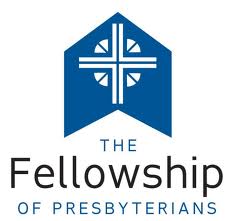Tuesday, March 27, 2012
One Foot in the ECO?
Many of us have been following with keen interest - and, in some cases, deep concern - the news of the formation of the Fellowship of Presbyterians, and especially the newer group calling itself the Evangelical Covenant Order, or ECO. Periodically throughout our history, disgruntled Presbyterian conservatives have formed such breakaway denominations, but their history is not encouraging. The new denominations have tended not to flourish in the long term, and they have often been subject to repeated splits. Our history has demonstrated, over and over again, that the habit of schism, once indulged, is a difficult one to break.
Unlike earlier breakaway movements, the ECO, in its published statements, seems reluctant to use the “D” word - “denomination” - in describing itself. It prefers the word "order," and in using it, has drawn parallels between itself and religious orders of the Roman Catholic Church like the Jesuits and the Franciscans. This is troubling, because the woolly language may mislead some congregational leaders into thinking they can vote to affiliate with the ECO without involving Monmouth Presbytery in the decision-making process. ECO leaders may prefer to speak of “affinity groups” and “a new way of being the church in a post-denominational era,” but such vague language doesn’t alter the fact that the ECO is, in fact, a new Presbyterian denomination.
Despite its leaders’ hesitancy to use the “D” word, the ECO looks, walks and quacks like the proverbial duck - the “D” referring to “denomination,” of course, not “duck.”
This is not true of The Fellowship of Presbyterians. Congregations who are so inclined may affiliate with The Fellowship without involving the Presbytery - although it would certainly be courteous to inform their Committee on Ministry liaisons of their intention to do so, and even to invite them to come speak to congregational leaders before a vote is taken.
The ECO, however, is a horse of a different color. While the “Polity” document of the ECO welcomes both congregations that wish to be "graciously dismissed" from the PC(USA) and become outright members, and those who wish to remain in the PC(USA) but have dual affiliation, the PC(USA) Form of Government has some very explicit provisions relating to the formation of “Union Congregations” - those that are affiliated with the PC(USA) and another denomination simultaneously.
Our Constitution does not permit congregations to simply vote to affiliate with the ECO – nor any other denomination – without first obtaining the permission and support of their PC(USA) presbytery for doing so. This is true even of those who envision themselves maintaining dual affiliation: one foot in the PC(USA) and one foot outside it.
The PC(USA) Office of Constitutional Services in Louisville has recently issued Constitutional Musing #25, “Joint Congregational Witness,” on this very topic. Ruling elders and teaching elders of any congregation who are considering establishing a relationship with the ECO would do well to read this document very, very carefully, and then to officially notify Monmouth Presbytery, in writing, that they are contemplating such a step, well in advance of any Session or Congregational votes on the subject. A Session or Congregation who votes to affiliate with the ECO without bringing the Presbytery into the decision - even under the understanding that they will have “one foot in and one foot out”of the PC(USA) - is in violation of the Form of Government and could be subject to ecclesiastical discipline. The Form of Government is clear that such Union Church relationships may only be established by explicit consent of the PC(USA) presbytery (G-5.05).
“But, aren’t we living in a post-denominational age?” some may counter. “The ECO is simply ‘pursuing a new way of being the church.’ This is merely a ‘mission partnership’ we want to be involved in. We want to be nimble and flexible, ever open to the Holy Spirit’s leading. We mean no harm. In fact, we mean to do a great deal of good, for the sake of the Lord!”
That may well be - and in that case, those interested in the ECO should easily be able to convince the Presbytery, through its Committee on Ministry, that their motives are pure, and that they wish to pursue their decision-making process with total transparency.
In John 12:36, our Lord encourages us to be “children of light.” Ephesians 5:8-13 says: “For once you were darkness, but now in the Lord you are light. Live as children of light.... everything exposed by the light becomes visible, for everything that becomes visible is light.” If a decision to affiliate with the ECO - with both feet, or just with one - truly belongs to God’s light, then it can certainly withstand the light of scrutiny by the Presbytery at every step along the way. The Presbytery is, after all, but a group of brothers and sisters in the Christian faith who are likewise striving to live in the light.
We never do agree on everything, in the church – haven’t, since the days of the Apostle Paul – but at least we in the Presbytery of Monmouth ought to be able to agree that, for the sake of our common relationship in the Lord, we owe one another clear communication and full transparency on anything and everything relating to the Fellowship of Presbyterians and the ECO.
Labels:
constitution,
controversy,
denominational,
ecumenical,
mission,
unity
Subscribe to:
Post Comments (Atom)







No comments:
Post a Comment